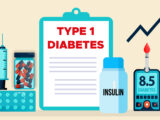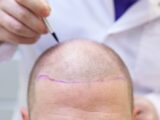
CHOOSING AN ADDICTION TREATMENT CENTER
May 12, 2021
Drug and alcohol misuse and addiction is a dreadful disease that wreaks havoc on the lives of addicts and their families. Fortunately, there are thousands of treatment centers around the country devoted to getting abusers on the road to recovery and keeping them there. In US, arizona addictive treatment center is a good option.
Your sobriety is very important, which is why it’s so important that you choose the right rehab.
The right treatment will increase your chances of completing the program, leaving it sober, and maintaining your sobriety when you return to your life. A different doctor is assigned to each rehab. For people with the same specialty would have different definitions of success and take different routes to get there.
You must select a treatment center that will assist you in achieving your rehab goals, but first, you must determine what those goals are.
MULTIDISCIPLINARY TREATMENT TEAM:
The highest quality inpatient substance abuse treatment programs involve a multidisciplinary care team to address all aspects of the disease, mind-body, and spirit. This suggests that the recovery program should involve a diverse group of experts who collaborate to develop a customized treatment plan. Everyone on the team should be able to exercise their realistic discipline. A multidisciplinary care team typically consists of the following individuals:
- Medical doctor
- Nurse
- Wellness specialist
- Spiritual care cunsulor
- Nutritionist
- Psychologist
USE OF EVIDENCE-BASED PRACTICES:
Evidence-based practices that have been proven by science-based studies are used in the most successful treatment services. Examples of evidence-based practices include twelve-step facilitation, cognitive behavioral therapy, medication-assisted therapy, and other treatment models.
MENTAL HEALTH SERVICES:
Many people who deal with alcohol or opioid abuse also have anxiety or depression as a co-occurring mental health disorder. An accurate dual diagnosis is needed to provide the appropriate care. The most promising approach for people with a concurrent diagnosis is to treat both the addiction and the co-occurring mental health condition at the same time.
SPECIALIZED PROGRAMS:
Treatment professionals that offer high-quality services should not follow a cookie-cutter approach to treatment. Whether it’s gender-oriented services, focused treatment for teenagers, young adults, or other specific groups, or other forms of personalized recovery, it’s critical to find rehab programs that provide individualized and customized care.
REHAB PROGRAM LENGTH:
Rather than a set number of days, your success determines how long you spend in care. Some substance abuse treatment services have an estimated period, but if no progress is made during that time, treatment can be prolonged.
MEDICATION-ASSISTED THERAPIES:
Before starting a recovery program, the hospital or health care provider can offer drug detoxification services, so going through medical detox on-site helps you to start the rehab process at the same time.
Both nurses and physicians with expertise in decreasing opioid cravings and easing the discomfort of alcohol or drug withdrawal should be on the medical staff of a detox unit. Regularly monitoring your physical well-being is an essential part of your recovery.
POSTTREATMENT RECOVERY SUPPORT:
Addiction treatment usually necessitates a high degree of professional care and assistance. When you leave drug rehab and are on your own, it’s important to have a support system in place to help you avoid relapse. Phone-based coaching, recovery-building apps, continuing care groups, and other services and resources are all available after treatment at high-quality treatment facilities.
FAMILY SUPPORT:
Addiction is often referred to as a family disease because of its condition that affects the entire family. Families need to heal and recover from addiction, too, set healthy boundaries, and built trust in the relationship. Treatment tends to have better recovery rates when the whole family is educated about addiction and involved in the recovery process.










